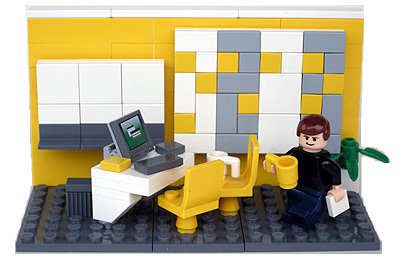This short bill has been refactored by taking into account the feedback provided by the students of this year's session.
I find that a interesting way to teach software development to students is to teach as you develop: Plan, Do, Check, Act (thanks Mr.Demming).
Therefore, the course is led as a software development project.
PLAN!
Each lesson starts by a short and focused meeting. During this 15-minute project meeting, we
- recall the important matters teached in the former session, and
- identify what we commit to deal with in the current session.
DO!
I never delay an answer to a student's question - even if it forces me to change and re-plan the sequence of the course. The course is driven by the students needs. It must be adaptative.
CHECK!
At the end of each lesson, the students must fill-in a short anonymous evaluation. They are asked provide the following feedback:
- What is really important in today's course?
- What did you not understand clearly (and did not dare to ask orally ;o)?
- Is there something we forgot to talk of?
- Do you have any remarks to improve the lesson's animation?
With this feedback, I try to continuously improve my teaching and insist on the important matters the students have misundersood (because I was'nt clear enough).
CHECK! (again)
Then, at the end of the full course, I give the students a full anonymous evaluation.
- Rate the contents from 1 to 4.
- Rate the animation from 1 to 4.
- What did you prefer in this course?
- What did you not enjoy in this course?
- Do you have any suggestion to improve the course?
- Would you recommend this course to another student?
With this feedback I try to improve next year's session.
I believe this practice of teaching software development enables students to feel what a develoment project is like. Indeed:
- The customer (the students) are involved in the project (the lesson).
- Each lesson is an increment of knowledge.
- Each lesson is an iteration.
- Each iteration starts with a little planning, a little estimating and some short-term commitment.
- The planning is not predictive. It is adaptative as the contents of an increment (or lesson) may change according to the customers (the students) needs (questions and remarks).
- Each iteration ends with a retrospective to provide feedback to improve the next iteration.




Aucun commentaire:
Enregistrer un commentaire